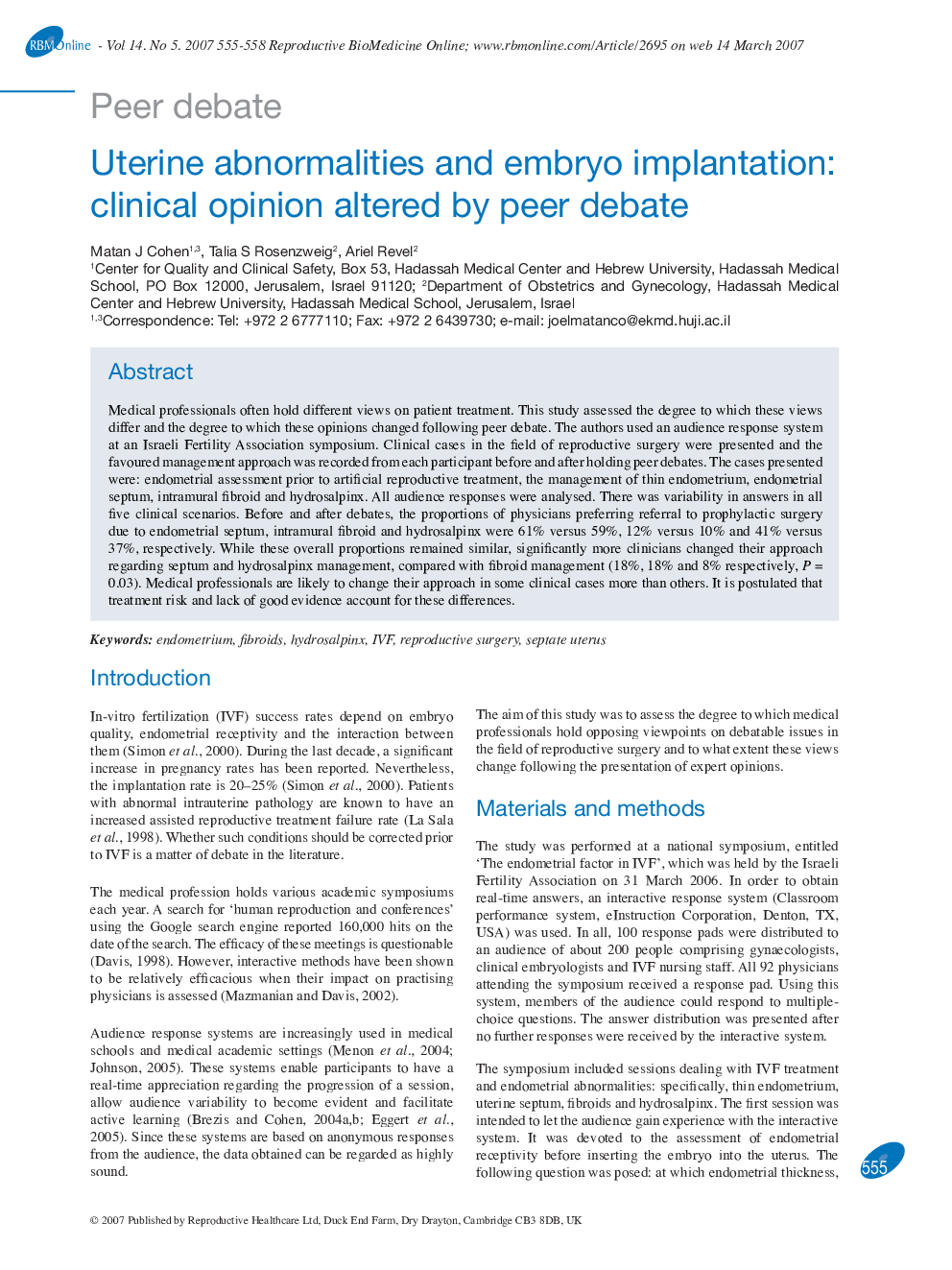| Article ID | Journal | Published Year | Pages | File Type |
|---|---|---|---|---|
| 3972971 | Reproductive BioMedicine Online | 2007 | 4 Pages |
Medical professionals often hold different views on patient treatment. This study assessed the degree to which these views differ and the degree to which these opinions changed following peer debate. The authors used an audience response system at an Israeli Fertility Association symposium. Clinical cases in the field of reproductive surgery were presented and the favoured management approach was recorded from each participant before and after holding peer debates. The cases presented were: endometrial assessment prior to artificial reproductive treatment, the management of thin endometrium, endometrial septum, intramural fibroid and hydrosalpinx. All audience responses were analysed. There was variability in answers in all five clinical scenarios. Before and after debates, the proportions of physicians preferring referral to prophylactic surgery due to endometrial septum, intramural fibroid and hydrosalpinx were 61% versus 59%, 12% versus 10% and 41% versus 37%, respectively. While these overall proportions remained similar, significantly more clinicians changed their approach regarding septum and hydrosalpinx management, compared with fibroid management (18%, 18% and 8% respectively, P = 0.03). Medical professionals are likely to change their approach in some clinical cases more than others. It is postulated that treatment risk and lack of good evidence account for these differences.
